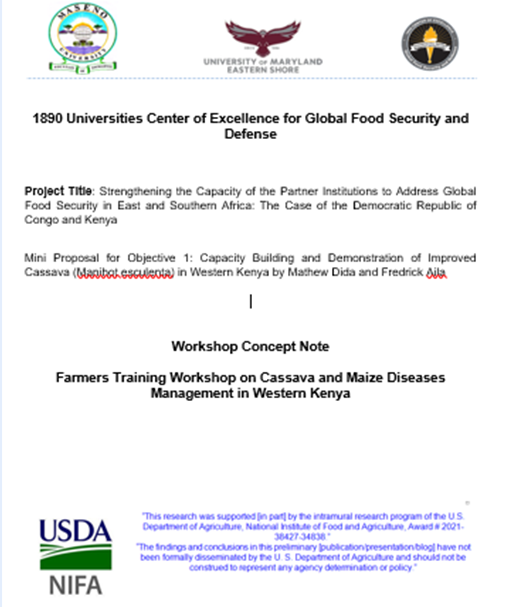Farmers Training on Cassava and Maize Diseases Management in Western Kenya
Content Builder
Cassava (Manihot esculenta) is a root crop native to tropical America that is now consumed by millions of people throughout the tropics, and is used in food preparation in many industrialized processes (Olsen & Schaal, 1999). Cassava now accounts for about 30 percent of the world production of roots and tubers. In Africa, it is caltivated in 40 out of 53 countries and accounts for half of world production (Guo, 2020). The cassava plant is a perennial woody shrub that grows from about one to three meters in height. The cassava plant is hardy and better able to tolerate drought and poor soil conditions than most other food plants. It can grow in extremely poor, acidic soils because it forms a symbiotic association with soil fungi (mycorrhizae). It is also one of the most productive food plants in terms of carbohydrate production per unit of land, and unequalled in its ability to recover when foliage is lost or damaged by diseases or pests (Burrell, 2003).

Farmers Training Workshop This workshop is designed to train 20 cassava and maize farmers from Kisumu and Siaya Counties in Western Kenya and the core project team and students. The training workshop is proposed to take place on 23rd February 2024 at Maseno University, Main Campus. It will leverage ongoing projects at the University in training farmers on cassava and maize diseases management. The key topics to be covered include: